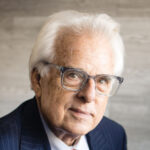Pick your cliche: Give them an inch and they will take a mile; in for a penny in for a pound, etc. In bioethics, there is never a permanent boundary beyond which the utilitarian impulse will not take them.
Now, advocacy is beginning to ask conscious patients who want to stop life-sustaining treatment for their organs. So far, this “non-heartbeating cadaver donor” process has only been done with the profoundly cognitively disabled. But now, that line is under assault. From an article by Dutch ethicists–euthanasialand!_in Clinical Ethics (201 3 Volume 8 Number I):
In a medical community in which withdrawal of lifesustaining measures in unconscious and in conscious ICU patients is accepted, where organ donation after death is common practice, and in which there is a shortage of organs for transplantation, there can be no moral objection to ask certain conscious ICU patients to donate their organs after death.
Although withdrawal of mechanical ventilation on request of the patient on the ICU is rare and therefore the number of organs that come available is limited, it is still well worth considering. We argue that there are no valid moral and legal objections against it; it is ethically feasible and practically possible to ask the patients for organ donation after death.
Well, here’s one: I can think of few things more dangerous to the weak and vulnerable than to allow people having trouble going on believe that their deaths have greater value than their lives.
How about another? Letting society think that same thing.
Next stop: Asking suicidal people for their organs. It already happens in Belgium euthanasia.
Author Profile

Latest entries
- BlogJanuary 27, 2015Ready or Not: Here Comes 2015 in Bioethics!
- BlogOctober 20, 2014A Case of Surrogacy’s Gordian Knot
 BlogAugust 19, 2014Transhumanism’s Eugenic Authoritarianism
BlogAugust 19, 2014Transhumanism’s Eugenic Authoritarianism- BlogAugust 13, 2014Suicide Cult Pushes Home Made Suicide Kits

